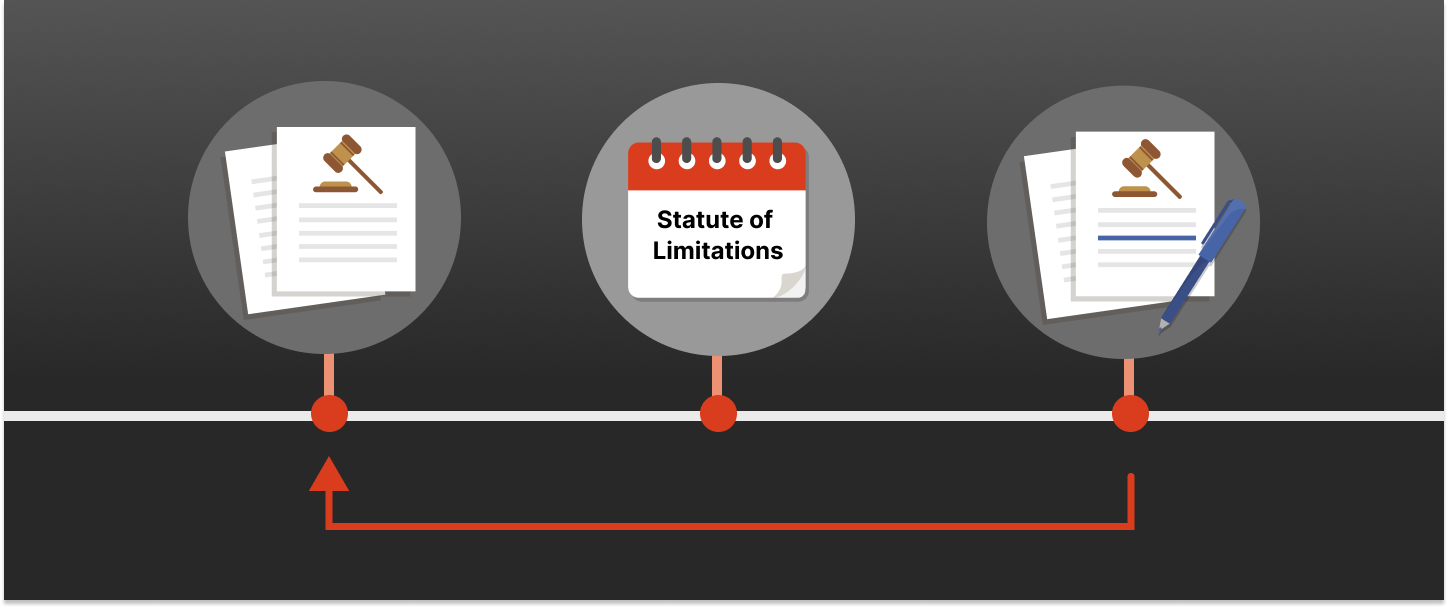Bar Exam Success
What Law School Classes Will Prepare Me for the Bar Exam?

What Law School Classes Will Prepare Me for the Bar Exam?
During your first year of law school, your courses were likely chosen for you. If you survived 1L year, you now have the joy of greater control over your law school schedule.
What factors should play into your law school course selections? Many students choose classes to prepare for a future practice area, classes taught by beloved professors, and perhaps a few classes to pad their GPAs. The bar exam should also factor into your course selections. In this guide, we cover courses that maximize your shot at success on the bar exam.
The specifics of the bar exam vary by jurisdiction, but most bar exams include a multiple-choice component and a written exam. If you want to brush up on bar exam basics, we cover the components of the Uniform Bar Examination (UBE) and some state-specific exams here.
What factors should play into your law school course selections? Many students choose classes to prepare for a future practice area, classes taught by beloved professors, and perhaps a few classes to pad their GPAs. The bar exam should also factor into your course selections. In this guide, we cover courses that maximize your shot at success on the bar exam.
The specifics of the bar exam vary by jurisdiction, but most bar exams include a multiple-choice component and a written exam. If you want to brush up on bar exam basics, we cover the components of the Uniform Bar Examination (UBE) and some state-specific exams here.
Preparing for the Multistate Bar Examination (MBE)
The MBE is the multiple-choice component of the UBE, and it’s used by the vast majority of jurisdictions with state-specific exams. All told, 49 states administer the MBE. Louisiana is the one exception. Unless you plan on Louisiana licensure, you will face the MBE.
The MBE tests 7 key areas of law: civil procedure, constitutional law, contracts, criminal law and procedure, evidence, real property, and torts. Law students cover many of these subjects in required courses taken during the first year of study.
The MBE tests 7 key areas of law: civil procedure, constitutional law, contracts, criminal law and procedure, evidence, real property, and torts. Law students cover many of these subjects in required courses taken during the first year of study.
Double up on MBE-tested subjects
But here’s the sneaky part: the MBE tests topics beyond the coverage of a required first-year course. For some MBE subjects, you might need 2 courses to be fully prepared for the bar exam. Here’s a breakdown:
- Civil Procedure. Your basic civil-procedure course likely covered a good portion of the topics tested on the MBE, including jurisdiction, venue, motions, and judgments. But civil procedure is considered a challenging MBE subject. To maximize your readiness, try a complex-litigation course. You’ll learn about class actions and review concepts regarding the preclusive effect of litigation, both of which are tested on the MBE.
- Constitutional Law. Take more than 1 course on constitutional law. The MBE tests federalism concepts, separation of powers, judicial review, and individual rights, including due process, equal protection, and First Amendment freedoms. In addition to the required con-law course, see whether your law school has an additional con-law class on individual rights or the First Amendment.
- Contracts. The MBE requires mastery of the common law and Articles 1 and 2 of the Uniform Commercial Code (UCC). If your basic contracts course didn’t spend much time on the UCC, consider taking an upper-level sales course.
- Criminal Law and Procedure. Your basic criminal-law course likely exposed you to the fundamentals of criminal law tested on the MBE, including homicide, property crimes, and crimes against the person, as well as accomplice liability and inchoate offenses. The MBE also tests criminal procedure and places a heavy emphasis on constitutional protections afforded to accused persons. To prepare for the criminal-procedure aspect, take a constitutional criminal-procedure course.
- Real Property. Your 1L property course likely covered several MBE-tested topics, including present estates, future interests, restrictive covenants, and easements. The MBE also tests real estate contracts and mortgages, so it’s a great idea to take an advanced property class, such as mortgage law or real estate transactions.
Try a remedies course
Doubling up on MBE-tested subjects isn’t the only way to sneak in early bar prep. Some advanced subjects incorporate a review of MBE-tested topics. A remedies course is a prime example.
The course will focus on the bottom-line result of litigation: what a court can do for a plaintiff who has been wronged. You’ll survey numerous remedies, such as damages, injunctions, specific performance, and restitution. Studying these remedies will mean reviewing bar-tested subjects you encountered earlier in your law school career, including contracts, torts, real property, and constitutional law. The refresher is beneficial and prepares you to transition into bar prep.
The course will focus on the bottom-line result of litigation: what a court can do for a plaintiff who has been wronged. You’ll survey numerous remedies, such as damages, injunctions, specific performance, and restitution. Studying these remedies will mean reviewing bar-tested subjects you encountered earlier in your law school career, including contracts, torts, real property, and constitutional law. The refresher is beneficial and prepares you to transition into bar prep.
Go for a closed-book final exam
In law school, upper-level courses use varying evaluation methods, including research papers and final exams. Even though it’s tempting to avoid the stress of finals, you should enroll in a few courses that feature final exams. Better yet, make them courses with closed-book final exams.
On the bar, you won’t be able to bring in outside materials like notes or outlines, and you’ll need to memorize a mountain of material. You can use your law school closed-book exams to hone your approach to memorization. With established memorization methods, you’ll fare better during bar prep.
On the bar, you won’t be able to bring in outside materials like notes or outlines, and you’ll need to memorize a mountain of material. You can use your law school closed-book exams to hone your approach to memorization. With established memorization methods, you’ll fare better during bar prep.
Preparing for Essays and Performance Tests
Most people equate the bar exam with multiple-choice questions, but you’ll likely face a written component as well. If you’re gearing up for the UBE, 50% of your score is allotted to the written portion of the exam. On the UBE, you’ll take an essay exam and a performance test designed to assess your ability to carry out a lawyering task. Try these course-selection tips to maximize your preparedness for the written portion of the bar exam:
Take essay-tested subjects
The MBE covers 7 subjects, but the essay portion of your bar exam may cover even more. If you’re preparing for the UBE, you’ll need to master 5 additional areas for the essay component of the exam, known as the Multistate Essay Examination (MEE). Tested subjects include business associations, conflict of laws, family law, secured transactions (UCC Article 9), and wills, trusts, and estates. Consider taking courses in these areas.
Take writing electives
Prepare by signing up for writing electives, such as advanced appellate advocacy, judicial writing, or transactional drafting. Although these courses vary greatly in the lawyering tasks they assign, all writing electives will sharpen your analytical skills and push you to express legal analysis clearly. Strong writing skills make the written components of the bar exam more approachable.
Take for-credit bar courses
For-credit bar courses are a great way to squeeze in bar prep before you graduate if they’re offered at your school. These courses offer academic credit and demystify the exam. In the typical course, you’ll study a subset of bar-tested topics and practice with questions from a real bar exam. This early practice is invaluable.
Preparing for the NextGen Bar Exam
The National Conference of Bar Examiners is developing a new version of the bar exam, set to debut in July 2026. Some questions on the NextGen exam will be patterned after the current MBE, but others will feature a “case file” approach. Examinees will be given fact patterns along with legal authorities, such as statutes, cases, or rules. The questions will assess an examinee’s mastery of substantive law alongside practical lawyering skills. For example, a question might test criminal law and client counseling skills, or evidence and fact investigation skills. Examinees will face a mix of different question formats, including multiple-choice and short-answer questions and longer-form written questions.
Here’s some happy news. The NextGen exam reduces the scope of substantive law tested. Four subjects currently tested on the MEE will be dropped: conflicts of law, family law, secured transactions, and wills, trusts, and estates. For the subjects that remain, the NextGen exam will reduce the load of material examinees must commit to memory. Some concepts will require only general familiarity, not detailed knowledge.
Another key change is the addition of professional responsibility to the NextGen exam. The NextGen exam won’t feature as broad a reach as the Multistate Professional Responsibility Examination (MPRE). Rather, NextGen will require knowledge of a subset of ethical rules that naturally arise in the context of an attorney-client relationship. Also, note that NextGen doesn’t replace the MPRE—the MPRE will continue to be administered as a separate exam.
Which states will use the NextGen exam? It’s too early to tell. At this writing, no jurisdiction has announced that it will adopt the NextGen exam for July 2026. However, if you think your state might be an early adopter, here are some course-selection tips:
Here’s some happy news. The NextGen exam reduces the scope of substantive law tested. Four subjects currently tested on the MEE will be dropped: conflicts of law, family law, secured transactions, and wills, trusts, and estates. For the subjects that remain, the NextGen exam will reduce the load of material examinees must commit to memory. Some concepts will require only general familiarity, not detailed knowledge.
Another key change is the addition of professional responsibility to the NextGen exam. The NextGen exam won’t feature as broad a reach as the Multistate Professional Responsibility Examination (MPRE). Rather, NextGen will require knowledge of a subset of ethical rules that naturally arise in the context of an attorney-client relationship. Also, note that NextGen doesn’t replace the MPRE—the MPRE will continue to be administered as a separate exam.
Which states will use the NextGen exam? It’s too early to tell. At this writing, no jurisdiction has announced that it will adopt the NextGen exam for July 2026. However, if you think your state might be an early adopter, here are some course-selection tips:
- Cover the MBE subjects. The NextGen exam will test the 7 MBE subjects—civil procedure, constitutional law, contracts, criminal law and procedure, evidence, real property, and torts.
- Take business associations. The NextGen exam will test business associations. You’ll need fluency with agency, partnership, corporations, and limited-liability corporations.
- Go for hands-on lawyering. The NextGen exam assesses practical skills, so any practice you get during law school with hands-on lawyering will translate into bar preparation. Consider clinical courses, simulation courses, and field placements, which offer academic credit for working under the guidance of a practicing attorney.
Do you want to be 100% prepared for the bar exam? Quimbee Bar Review+ features real, licensed questions from past bar exams; essay grading by real attorneys; and beautifully designed video lessons. Elect full-time study during the 11 weeks leading up to the exam or part-time study over a longer period. Want to learn more about the unique features Quimbee Bar Review+ uses to help prepare you for the bar exam? Book a 30-minute demo of the course for free.






.png)
